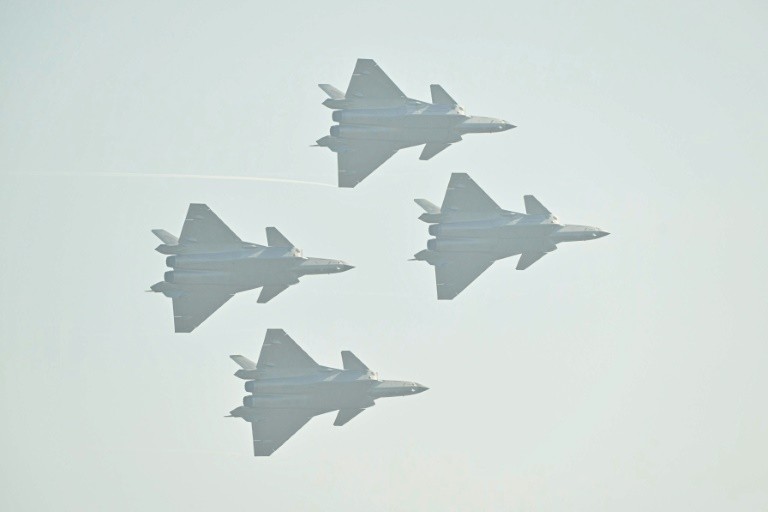
China has introduced new regulations to restrict the online dissemination of military-related information, a move that could limit key sources used to monitor the world's largest armed forces.
The rules, announced over the weekend and set to take effect on March 1, come as China continues to modernize and expand its People's Liberation Army (PLA) to rival the military strength of the United States. This latest measure aligns with President Xi Jinping's broader campaign to bolster national security and protect state secrets amid rising geopolitical tensions.
The sweeping regulations could significantly impact Chinese military bloggers and commentators who frequently share images and details about new weapons, personnel changes, and troop movements. These online sources have been valuable for analysts tracking China's military development.
According to a government Q&A, the new rules aim to curb "the spread of false military information" and "the leakage of military secrets" on the internet. The regulations strictly prohibit the "producing, copying, publishing, and disseminating" of military secrets, national defense technology, and other undisclosed military information. The restrictions extend to topics such as weapons development and testing, military drills, unit structures, and troop capabilities that have not been officially disclosed.
Both individual users and "online military information service providers" are targeted by the regulations. This includes military-focused websites, media columns, and social media accounts dedicated to military affairs.
Reflecting their broad scope, the regulations were issued jointly by 10 government and Communist Party departments, including China's top internet regulator, the PLA's highest commanding body, and the ministries of public security, state security, and culture and tourism.
Open-source information has played a crucial role in tracking China's military advancements. In December, online images and videos of what was believed to be China's next-generation stealth fighter jet sparked widespread discussion among both Chinese and international observers after the aircraft was seen flying over two Chinese cities.
The impact of the new rules on foreign media reporting on China's military remains uncertain.
Analysts suggest the regulations indicate an effort to tighten control over military-related content in China's online space.
"Military and defense-related content enjoys significant popularity among Chinese internet users, but the leadership is clearly keen to ensure that sensitive information — a concept broadly applied in China — and speculation do not undermine the official narrative around the country's military development and capabilities," wrote David Bandurski, executive director of the China Media Project.
James Char, a PLA expert and assistant professor at the S. Rajaratnam School of International Studies in Singapore, noted that information related to China's military has long been under strict government supervision.
Some restrictions outlined in the new regulations were already covered by previous laws, including bans on content that harms national security, disrespects the military, or criticizes China's defense policies. Others, such as spreading false military information, are routinely censored on Chinese social media.
"I regard the announcement of these regulations as nothing more than the institutionalization of existing rules," Char said.
However, Char noted that the explicit ban on sharing information about troop movements and military deployments may have a chilling effect on Chinese internet users, including military bloggers and everyday citizens.
"This may have an effect on these individuals' readiness to post such material online the next time they come across troop movements or a military exercise in their localities," he said.
"This will also work in Beijing's interest in preventing its troop deployments within the mainland from being exposed in advance of another major military exercise or troop build-up in China's coastal regions off the Taiwan Strait."








